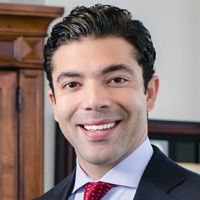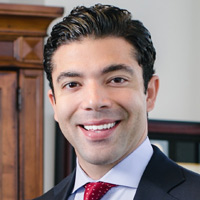Don't Let Bad Timing Be Your Biggest Retirement Mistake
Prolonged stock market drops, especially early in retirement, can be utterly devastating. To protect yourself, break out the bucket strategy.


Profit and prosper with the best of Kiplinger's advice on investing, taxes, retirement, personal finance and much more. Delivered daily. Enter your email in the box and click Sign Me Up.
You are now subscribed
Your newsletter sign-up was successful
Want to add more newsletters?

Delivered daily
Kiplinger Today
Profit and prosper with the best of Kiplinger's advice on investing, taxes, retirement, personal finance and much more delivered daily. Smart money moves start here.

Sent five days a week
Kiplinger A Step Ahead
Get practical help to make better financial decisions in your everyday life, from spending to savings on top deals.

Delivered daily
Kiplinger Closing Bell
Get today's biggest financial and investing headlines delivered to your inbox every day the U.S. stock market is open.

Sent twice a week
Kiplinger Adviser Intel
Financial pros across the country share best practices and fresh tactics to preserve and grow your wealth.

Delivered weekly
Kiplinger Tax Tips
Trim your federal and state tax bills with practical tax-planning and tax-cutting strategies.

Sent twice a week
Kiplinger Retirement Tips
Your twice-a-week guide to planning and enjoying a financially secure and richly rewarding retirement

Sent bimonthly.
Kiplinger Adviser Angle
Insights for advisers, wealth managers and other financial professionals.

Sent twice a week
Kiplinger Investing Weekly
Your twice-a-week roundup of promising stocks, funds, companies and industries you should consider, ones you should avoid, and why.

Sent weekly for six weeks
Kiplinger Invest for Retirement
Your step-by-step six-part series on how to invest for retirement, from devising a successful strategy to exactly which investments to choose.
Despite cautionary tales you might hear about how Americans are failing at saving for retirement, plenty of people get it right.
They work hard and start saving early. They make the most of 401(k) and other investment accounts, and they accumulate as much as they can in a diversified portfolio.
Unfortunately, for some, that won’t be enough, because if they don’t take the proper steps to protect their money, they still could run short in retirement.
From just $107.88 $24.99 for Kiplinger Personal Finance
Become a smarter, better informed investor. Subscribe from just $107.88 $24.99, plus get up to 4 Special Issues

Sign up for Kiplinger’s Free Newsletters
Profit and prosper with the best of expert advice on investing, taxes, retirement, personal finance and more - straight to your e-mail.
Profit and prosper with the best of expert advice - straight to your e-mail.
It’s a Mistake to Count on Stocks for Income
That’s a hard thing to have to tell prospective clients when they proudly produce their statements and talk about how relieved they are to have reached their retirement “number.” Wall Street has convinced a lot of retirees that it will be easy to turn their investments into the income they’ll require when they no longer earn a paycheck. All you have to do is “pull a percentage” from your portfolio every year. Need a little extra? Maybe sell some shares of Amazon.
Thanks to a record-setting bull market, that strategy may seem to make sense. Stocks have been the rock stars in most retirement accounts for more than a decade now, but many stocks aren’t meant to produce retirement income — they’re meant for long-term appreciation. Those who forget that — and ignore what happened to friends and family who retired in 2000 or 2008, just as stock prices plunged — are putting their own retirement at risk.
A recession just before or after you enter retirement can devastate even the most promising portfolio. How the stock market performs as you begin taking withdrawals can have a dramatic effect on your nest egg. It’s called sequence of returns risk, and it means the less time you have to make up for losses, the more important it becomes to protect your principal.
Why Poor Bob Ran Out of Money
To demonstrate the danger, I often use the hypothetical example of Bob and Susan. Each entered retirement at age 65 with a $500,000 portfolio. Each started taking withdrawals of 5% each year and increased those withdrawals by 3% each year to keep up with inflation. Each averaged an 8.03% annual return, and each experienced big losses for three consecutive years. (For a detailed look at Bob and Susan’s portfolios year by year, view the charts at nicholaswealth.com.)
Bob and Susan, however, had significantly different results based on when those market losses occurred.
Bob encountered major losses in the beginning of his retirement, when he was around age 65 or 67, and because he kept withdrawing money from his depleted savings, he ran out of money at age 83. Susan had the same big losses — almost $1 million from the time she was 87 to age 89, but because those losses came later in retirement and her money had decades to grow before it happened, she still has $1,677,975 — enough to last through the rest of her retirement and probably enough to pass some on to her beneficiaries when she dies.
To Avoid Being Bob, Break Out the Buckets
After years of saving, to think that success or failure could come down to a random decision about when to retire is pretty scary, right?
The good news is you can help avoid sequence of returns risk with something called a “bucket strategy,” in which you split your assets among three buckets, based on when you’ll need your money. I call these buckets “liquid,” “income” and “growth.”
- The liquid bucket is there primarily as an emergency fund. You can use it for home or car repairs, a medical bill or some other big expense that might come up (just as you would use a rainy-day fund before retirement). I recommend keeping enough to cover at least six months of living expenses. That way, you won’t be forced to sell your stock if you happen to experience an unexpected financial snag. If you need to access funds quickly, you’ll probably want to keep this money in a high-yield savings account.
- The income bucket is the part of a portfolio that’s protected and generates interest or dividends. It’s the bucket you’ll make withdrawals from in the first 10 years of retirement. It could include dividend-paying stocks, short-term bonds and/or insurance contracts. As you move through retirement, you can depend on the money from these investments — which are typically safer and more reliable — to pay your bills for at least 10 years. That’s how you avoid being Bob.
- Bob depended on the growth bucket for his retirement income. Although the growth bucket is great for long-term appreciation, growth stocks should not be used to generate income during the first 10 to 12 years of retirement. They are in place to help you keep up with inflation and refill the income bucket if necessary, down the road. During a recession, you won’t have to sell stocks at a loss if the market is down, because your income needs should be fully met by your liquid and income buckets.
We all want to be Susan and end up with more money near the end of retirement than when we started, but in this example, her timing was just lucky. She had been retired for 20 years before she took the same big hit Bob took in his first three years. Bob couldn’t have predicted his predicament, and Susan couldn’t have foretold her good fortune.
The good thing is, you don’t have to worry as much about timing if you’re prepared.
If you know when you hope to retire, whether it’s around age 60, 65 or 70, it’s a good idea to build your buckets about five to 10 years earlier. In that way, if there’s a recession before your planned retirement date, you won’t have to delay or downsize your plans or, worse, go into retirement knowing you might run out of money.
Why leave your future to chance? Protecting a portion of your assets against losses may be the single most important step you can take toward financial security in retirement. Talk to your financial adviser about what strategies would work best in your buckets and how to transition your portfolio from accumulation to preservation.
Kim Franke-Folstad contributed to this article.
Securities offered through World Equity Group, Inc., members FINRA and SIPC. Investment advisory services offered through BluePath Capital Management, LLC / DBA Nicholas Wealth Management. Nicholas Wealth Management and World Equity Group, LLC are separate entities.
The appearances in Kiplinger were obtained through a PR program. The columnist received assistance from a public relations firm in preparing this piece for submission to Kiplinger.com. Kiplinger was not compensated in any way.
Profit and prosper with the best of Kiplinger's advice on investing, taxes, retirement, personal finance and much more. Delivered daily. Enter your email in the box and click Sign Me Up.

David Nicholas is president and founder of Nicholas Wealth Management (www.nicholaswealth.com). He maintains FINRA Series 7, 63 and 65 securities designations and has life and health insurance licenses in Georgia.
-
 Nasdaq Leads a Rocky Risk-On Rally: Stock Market Today
Nasdaq Leads a Rocky Risk-On Rally: Stock Market TodayAnother worrying bout of late-session weakness couldn't take down the main equity indexes on Wednesday.
-
 Quiz: Do You Know How to Avoid the "Medigap Trap?"
Quiz: Do You Know How to Avoid the "Medigap Trap?"Quiz Test your basic knowledge of the "Medigap Trap" in our quick quiz.
-
 5 Top Tax-Efficient Mutual Funds for Smarter Investing
5 Top Tax-Efficient Mutual Funds for Smarter InvestingMutual funds are many things, but "tax-friendly" usually isn't one of them. These are the exceptions.
-
 Social Security Break-Even Math Is Helpful, But Don't Let It Dictate When You'll File
Social Security Break-Even Math Is Helpful, But Don't Let It Dictate When You'll FileYour Social Security break-even age tells you how long you'd need to live for delaying to pay off, but shouldn't be the sole basis for deciding when to claim.
-
 I'm a Wealth Adviser Obsessed With Mahjong: Here Are 8 Ways It Can Teach Us How to Manage Our Money
I'm a Wealth Adviser Obsessed With Mahjong: Here Are 8 Ways It Can Teach Us How to Manage Our MoneyThis increasingly popular Chinese game can teach us not only how to help manage our money but also how important it is to connect with other people.
-
 Global Uncertainty Has Investors Running Scared: This Is How Advisers Can Reassure Them
Global Uncertainty Has Investors Running Scared: This Is How Advisers Can Reassure ThemHow can advisers reassure clients nervous about their plans in an increasingly complex and rapidly changing world? This conversational framework provides the key.
-
 Should You Jump on the Roth Conversion Bandwagon? A Financial Adviser Weighs In
Should You Jump on the Roth Conversion Bandwagon? A Financial Adviser Weighs InRoth conversions are all the rage, but what works well for one household can cause financial strain for another. This is what you should consider before moving ahead.
-
 The 8 Stages of Retirement: An Expert Guide to Confidence, Flexibility and Fulfillment, From a Financial Planner
The 8 Stages of Retirement: An Expert Guide to Confidence, Flexibility and Fulfillment, From a Financial PlannerRetirement planning is less about hitting a "magic number" and more about an intentional journey — from understanding your relationship with money to preparing for your final legacy.
-
 5 Mistakes to Avoid in the 5 Years Before You Retire, From a Financial Planner
5 Mistakes to Avoid in the 5 Years Before You Retire, From a Financial PlannerWhen retirement is in reach, financial planning gets serious — and there's a heightened risk of making serious mistakes, too. Here are five common slipups.
-
 I'm a Financial Planner: This Retirement Strategy Helps Plot a Stress-Free Path to Cash Flow
I'm a Financial Planner: This Retirement Strategy Helps Plot a Stress-Free Path to Cash FlowDividing funds into a safety bucket, an income bucket and a growth bucket can help to cover immediate expenses, manage cash flow and promote growth.
-
 Your Most Overlooked Retirement Investment: Luxuriating in Doing Nothing
Your Most Overlooked Retirement Investment: Luxuriating in Doing NothingWhen you take the time to rest and breathe, your brain starts to focus on what matters most in your new stage of life.